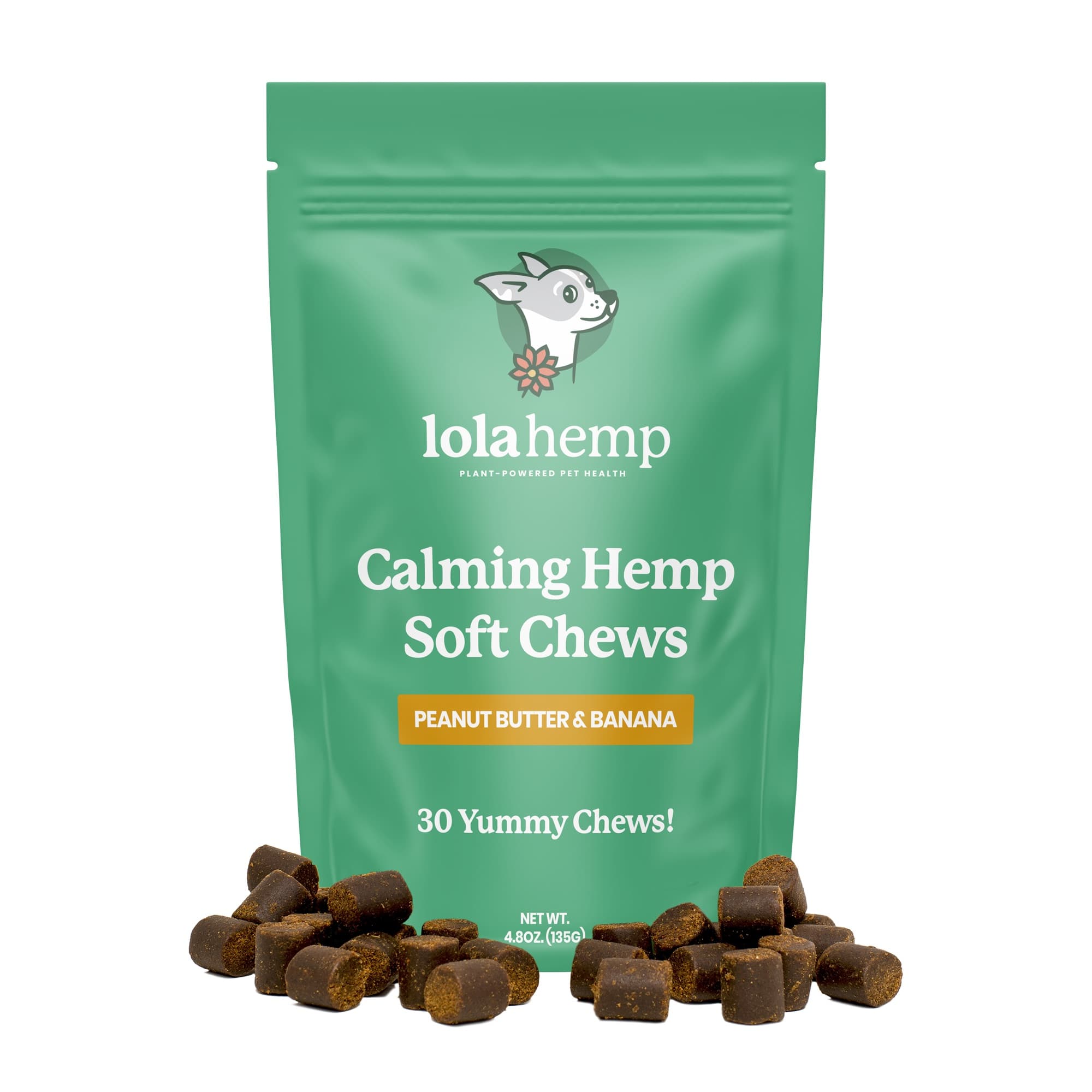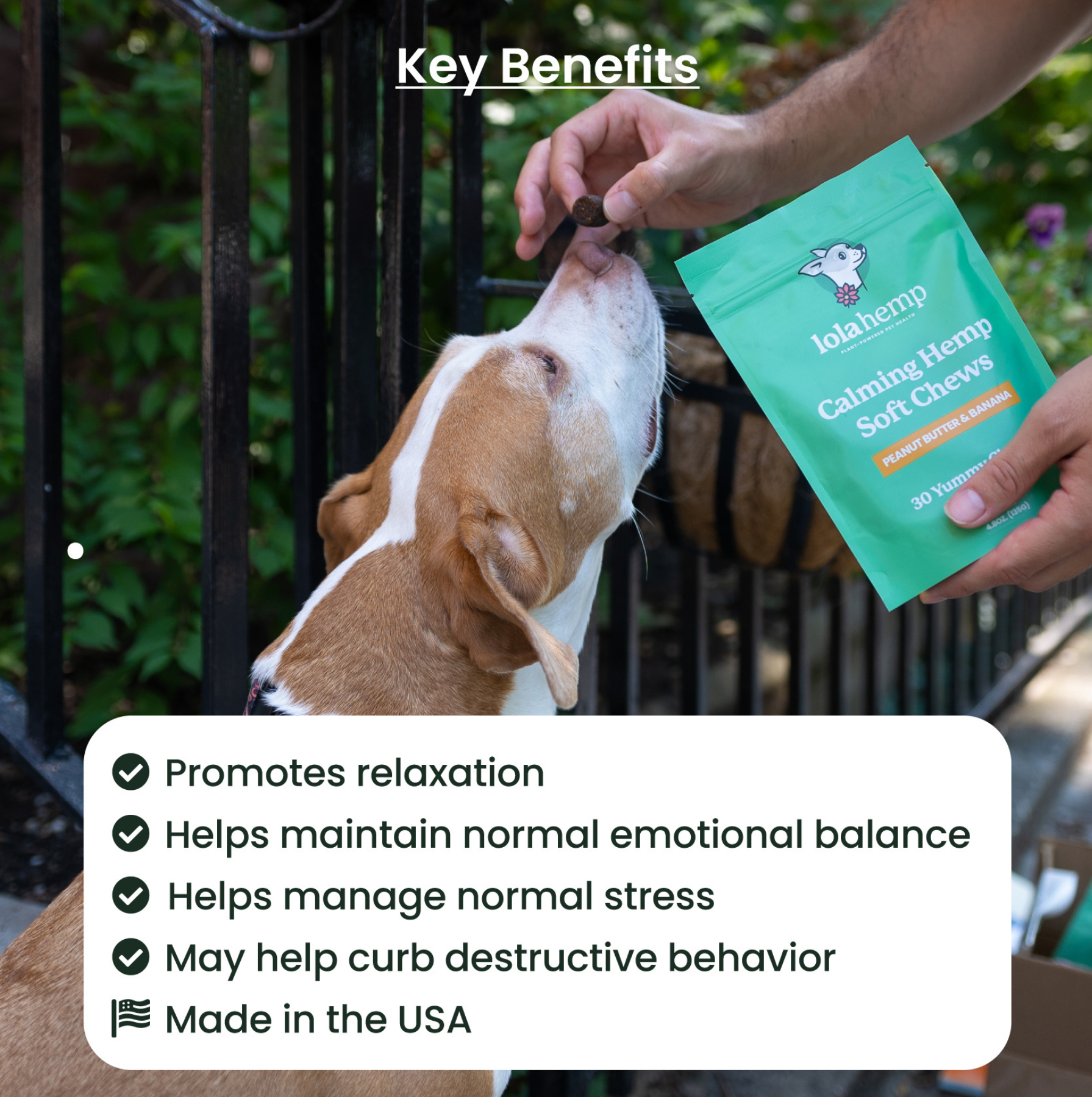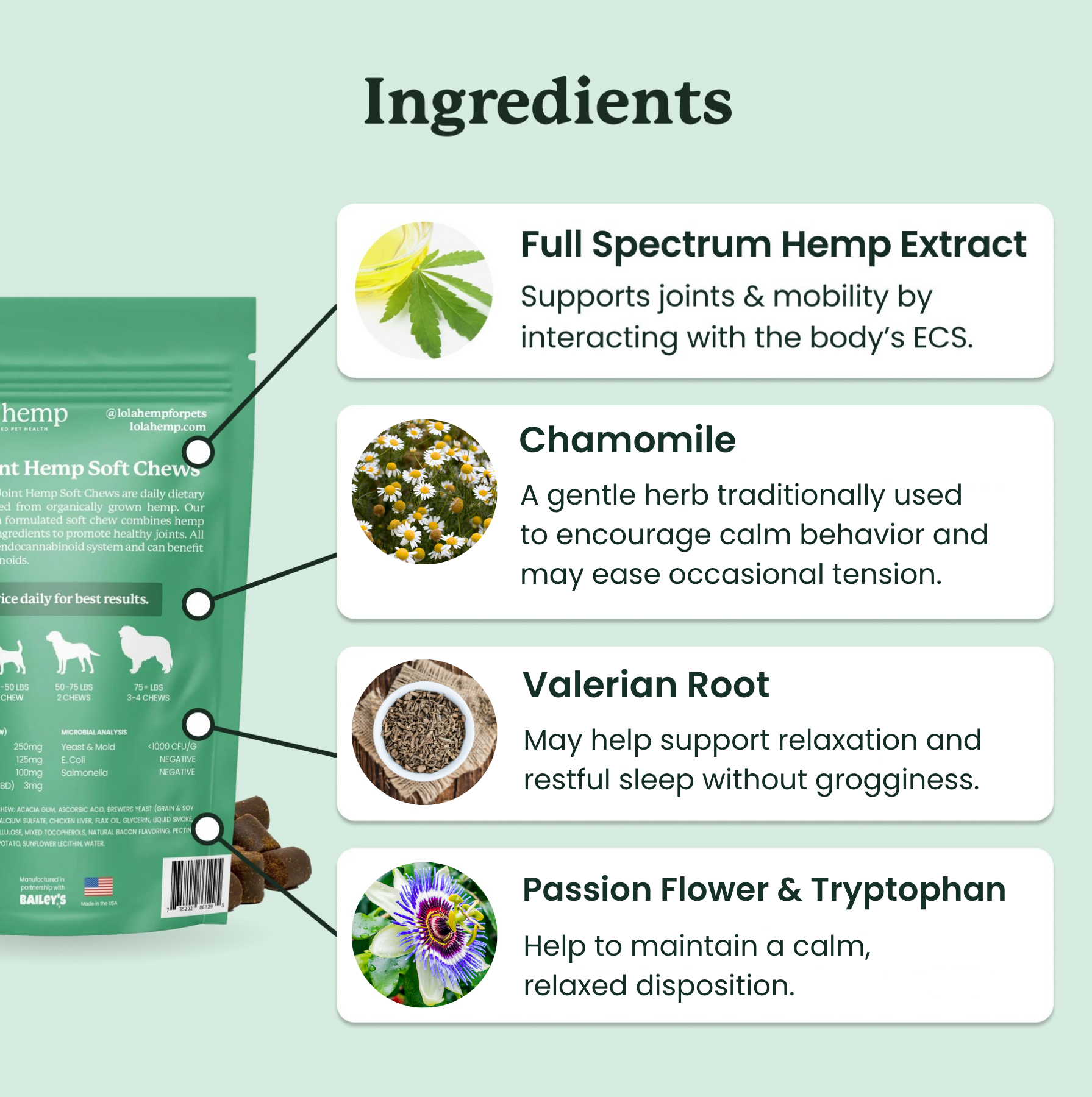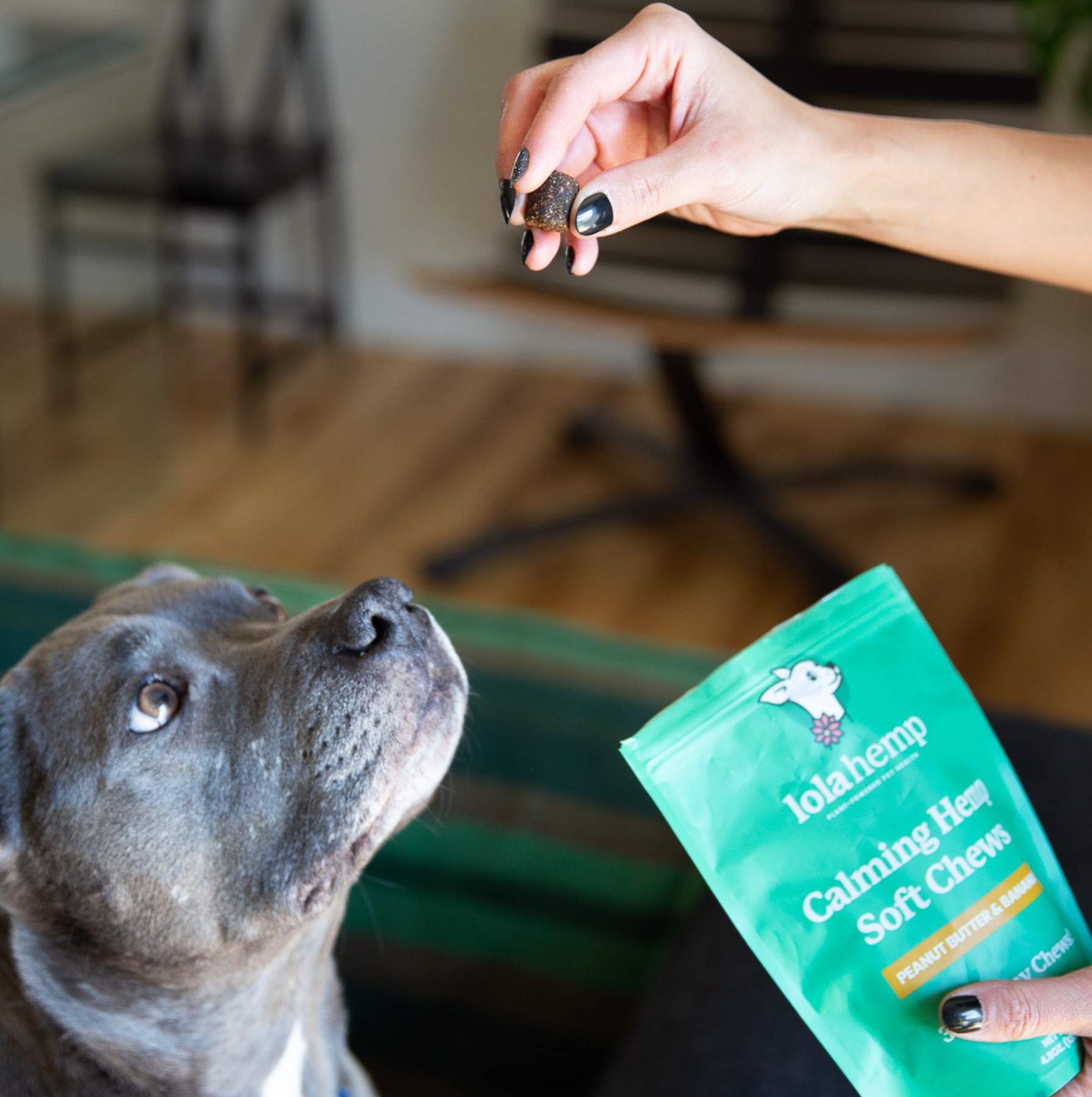As pet owners, we strive to ensure our furry companions lead happy, healthy lives—starting with a restful night’s sleep. Dogs can face challenges that disrupt their sleep, whether it's restlessness, anxiety, or other underlying issues. CBD may be able to support dogs struggling to calm down for these reasons.
Recently, CBD (cannabidiol) has gained attention as a natural remedy for promoting better sleep in dogs. But how does it work, and what potential benefits can it offer your dog? Let's explore the science behind CBD and its possible role in improving your dog's sleep quality.

How CBD May Help Your Dog Sleep Better
CBD doesn’t directly act as a sleep aid, but it can help address the underlying issues preventing your dog from falling asleep. Many dogs struggle to sleep due to stress, discomfort, or an inability to relax. Since dogs generally need 12 to 18 hours of sleep daily, disruptions in their sleep patterns may point to an underlying issue. While CBD may not resolve the root cause, it can promote relaxation, alleviate discomfort, and support a calm, restful environment to improve sleep quality.
-
Promoting Relaxation
CBD can have a calming effect, helping to reduce distress caused by common triggers like loud noises or separation. By easing these anxieties, CBD can help your dog feel more at ease and settle into sleep. -
Reducing Pain and Discomfort
For dogs with chronic discomfort, CBD may support the inflammatory response and discomfort, allowing them to relax and sleep more comfortably. -
Regulating Sleep Patterns
CBD may help stabilize the sleep-wake cycle, which is especially beneficial for older dogs or those with irregular sleep schedules, promoting a more restful night.
If your dog experiences sleep disruptions that could be benefited by any of the issues above, then CBD is something to consider. CBD affects all dogs a little differently, and it may have a better result in your dog than it does in other dogs, and vice versa.
If you're considering CBD to help your dog sleep, be sure to run the idea by your veterinarian, particularly if your dog is on any additional medications.

How to Use CBD for Dog Sleep
If you’re considering CBD to help your dog sleep better, it’s important to approach it thoughtfully. Here are some guidelines to help you safely and effectively incorporate CBD into your dog’s routine:
1. Consult Your Veterinarian
Before introducing CBD to your dog, it's essential to talk to your veterinarian. They can provide personalized advice based on your dog's health, age, and specific needs. This step ensures that CBD is a safe option for your furry friend.
2. Choose the Right Product
Select high-quality CBD products specifically formulated for pets. Look for:
- Full-spectrum or broad-spectrum CBD: These contain a range of beneficial compounds.
- Third-party testing: Ensure the product is tested for purity and potency, confirming it contains the labeled amount of CBD.
- Natural ingredients: Avoid products with artificial additives or harmful substances.
3. Determine the Appropriate Dosage
Start with a low dose to gauge your dog’s response. General dosing guidelines suggest:
- Small dogs (under 25 lbs): Start with 2-5 mg of CBD.
- Medium dogs (25-50 lbs): Start with 5-10 mg.
- Large dogs (over 50 lbs): Start with 10-20 mg.
Always adjust based on your dog's individual needs, and consult your vet if you’re unsure.
4. Administer CBD Consistently
Consistency is key for seeing results. Administer CBD at the same time each day, ideally about 30-60 minutes before bedtime, to help promote relaxation and prepare your dog for sleep.
5. Monitor Your Dog’s Response
Keep an eye on how your dog reacts to CBD. Look for signs of improvement in sleep quality, such as:
- Easier time settling down at night
- Reduced anxiety during stressful situations, reduced reactivity
- Longer periods of restful sleep
If you notice any adverse reactions, such as increased agitation or changes in behavior, stop using the product and consult your veterinarian.
6. Adjust as Needed
Based on your observations, you may need to adjust the dosage or timing of administration. Some dogs may require a higher dose for desired effects, while others may respond well to lower amounts.
Conclusion
In conclusion, while CBD may not directly induce sleep, it can play a significant role in improving your dog’s ability to relax, manage discomfort, and regulate their sleep patterns. If your dog struggles with anxiety, pain, or disrupted sleep, CBD may offer a natural and supportive solution.
Always consult your veterinarian to ensure CBD is a suitable option for your dog’s specific needs. By helping your dog feel more comfortable and at ease, CBD can contribute to better, more restful nights for your furry companion.
Frequently Asked Questions About CBD for Dog Sleep
What is CBD for dog sleep?
CBD for dog sleep refers to the use of cannabidiol to help support relaxation, comfort, and improved sleep quality in dogs.
Can CBD help dogs sleep better?
CBD may help dogs sleep better by promoting relaxation, easing discomfort, and supporting a calm environment.
How long does CBD take to work for dog sleep?
CBD typically takes 30-60 minutes to take effect for most dogs, depending on the product and individual response.
Is CBD safe for dogs to use for sleep?
CBD is generally considered safe for dogs when used appropriately, but consulting a veterinarian is recommended.
How much CBD should I give my dog for sleep?
The appropriate amount varies by size and individual needs, but starting with a low dose and adjusting as needed is advised.









